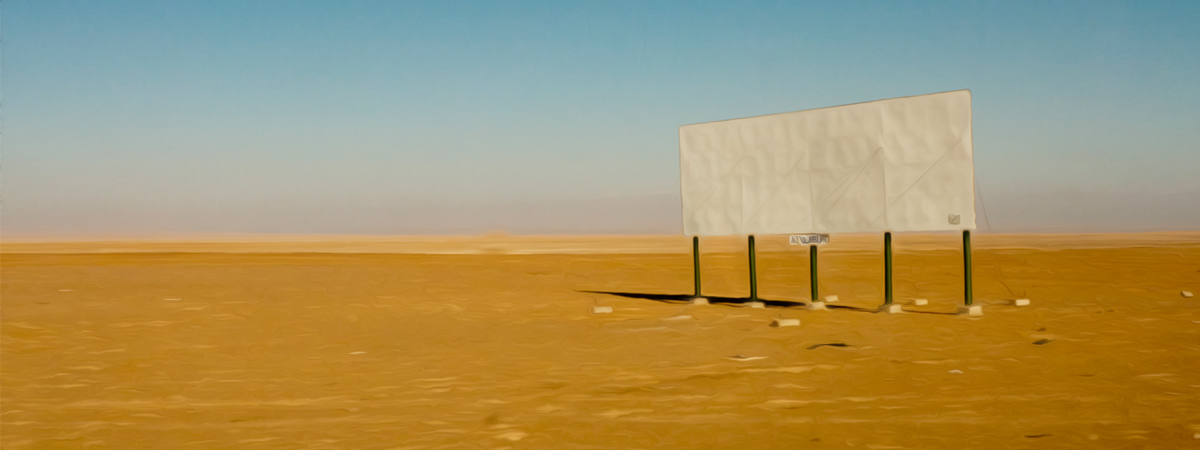The world has problems. Big problems. They need big answers, ambitious projects and innovative solutions. And they cost money. Lots of it. Three trillion dollars over the past sixty years, if the research is to be believed. It’s big business.
With these kinds of resources, what could go wrong? The problem is, many development initiatives have gone wrong, and continue to. Somewhere along the line development has lost it’s way. For many people it is so lost that it’s now become part of the problem.
While donors and other more senior professional development practitioners might disagree, many of the people I know who work in the various guises of ‘development’ admit that—on the whole—it’s not working, that resources are mis-focused, and that the majority of international aid initiatives are not fit for purpose. That’s not to question the motives of those who work to make the world a better place, it’s just that often they choose the wrong vehicle in which to do it. As Bill Easterly says:
There’s no shortage of debate, of course. Many academics spend most of their waking hours dissecting and analyzing the big data on big aid, only to come up with different conclusions. The more practical among us choose to just get on with it, and choose to do it outside the system. Rather than taking jobs in large development structures, we go about it on our own terms. This is the approach featured in my recent book, “The Rise of the Reluctant Innovator.“
The world has problems. Big problems. They need big answers, ambitious projects and innovative solutions. Tweet This Quote
There’s no better example of big development than the Millennium Development Goals which, at the time of writing are about 450 days away from ‘maturing’. Progress has been sketchy. Given that it can sometimes take years to collect and analyze the kind of data needed to measure them, it may be some time beyond the 2015 deadline before we know how many were met. And then we’ll never really know whether it was development policies, or simple economic growth, that was responsible. As with most things development, few things are that clear cut. If they’re met it might not be clear who to thank, and if we fail we’ll not know who to blame, either.
That all said, it’s far easier for critics who sit on the sidelines and say how rubbish it all is. It’s much harder coming up with actual answers, and harder still acting on them. I, for one, have always tried to balance my criticism of the technology-for development (ICT4D) sector with suggestions, ideas and thoughts on how we might improve our effectiveness. Just last week I announced my Donors Charter, an attempt to bring some harmony to how technology-for-development projects get funded.
Aid does do good, but it could do so much better if it got it’s house in order. Tweet This Quote
Going by a recent article in the Huffington Post, many donors are becoming increasingly concerned about how aid —and their work—is perceived outside the sector. That concern has lead to the birth of the Narrative Project, whose goal is “to reverse the decline of public support for our work” and to counteract “fatigue” among rank-and-file supporters of these charities, many of whom increasingly view aid as “a good idea, done badly”.
Reading between the lines it might appear that many of the donors involved believe that aid is fundamentally “a good idea, done well” and that the problem is simply one of PR. Let’s hope this isn’t the case. While aid definitely does have a PR problem, there’s also plenty wrong with how it’s executed—and we can only hope that those present at the meetings accept that, and have committed to addressing it, too.
The Narrative Project does include a call for “a co-ordinated development sector”, and donors hold many of the cards (as I argue with the Donors Charter). It also makes the point that independence and self-reliance, i.e. people in the developing world solving their own problems, should be key development objectives. And that people need to believe they can make a difference. None of this is new, but it’s refreshing to see it being discussed at such a high level.
The world needs a strong international development sector…it needs to work for the people it seeks to help, not in the interests of itself Tweet This Quote
One huge red flag, however, are the parties to the work. The UN Foundation, Bond, The Bill & Melinda Gates Foundation, ONE, Oxfam, Comic Relief and others. All large international players. Let’s hope that somewhere along the way they consulted smaller organizations, local organizations, local innovators, small projects and low-level grantees. We all know what happens when you talk in silos. And this looks like an international donor silo to me.
Like many colleagues and friends, I’ve grown increasingly despondent with the international development sector, and have only managed to stay positive thanks to my early decision to ‘go it alone’. Aid does do good, but it could do so much better if it got it’s house in order. And that’s the frustrating thing for me. In a career spanning 21 years, many of the bigger institutional problems persist, with no-one seemingly having the energy, the influence or the political will to fix any of it.
In my ICT4D world, there are some very simple (and I’d argue, obvious) things, for example.
- Focus more on enabling environments—genuine empowerment opportunities for those who own, or who are closest to, the problem.
- Seriously get behind, and support, projects that we know are working, or know have the best approach. Stop always looking for the next big thing.
- Have at least a few innovators on staff. Don’t head up innovation teams with people who have never built anything.
- Adopt best practice, along the lines of the Donors Charter.
- Give local innovators a voice.
- The world needs a strong international development sector, particularly when it’s called to deliver emergency aid in times of greatest need. But beyond that it needs to work for the people it seeks to help, not in the interests of itself. It needs to be bold, be brave, and do things that might not always be in its best interests.
And it needs an exit strategy. Without one, how is anyone expected to have confidence that they’re doing the right thing, the right way?



